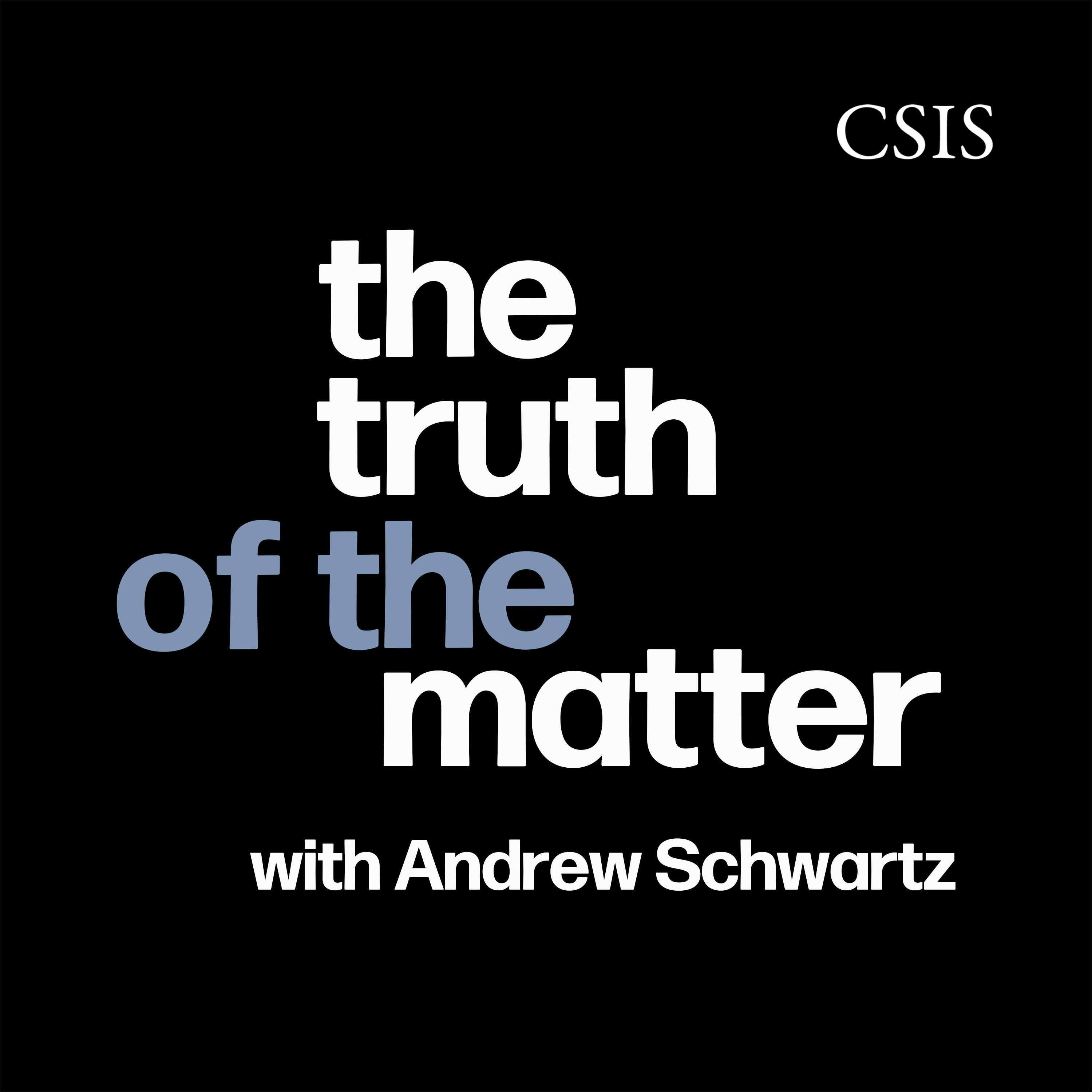

The Truth of the Matter
CSIS | Center for Strategic and International Studies
A weekly analysis of the complex policy issues driving the news.
Episodes
Mentioned books

20 snips
Jul 10, 2025 • 31min
AI Competition and Security: A discussion with Kemba Walden and Devin Lynch
Kemba Walden, President of the Paladin Global Institute and former Acting National Cyber Director, teams up with Devin Lynch, Senior Director at the same institute and former director in the Office of the National Cyber Director. Together, they unravel the tangled complexities of AI technology and cybersecurity. They stress the significance of robust governance to protect AI systems, the unpredictable risks tied to insecure AI, and the collaboration needed to secure U.S. infrastructure. Additionally, they explore the crucial balance between innovation and regulatory frameworks in the evolving tech landscape.

Jul 3, 2025 • 16min
Keeping Our Beaches Clean with the Surfrider Foundation
Mara Dias, the Water Quality Initiative Senior Manager at the Surfrider Foundation, leads the Blue Water Task Force, which monitors beach water quality across the U.S. She discusses the alarming pollution levels at many beaches, especially on the East Coast, and their public health implications. Mara highlights the need for better wastewater management and infrastructure to protect coastal environments. She also emphasizes community engagement in clean water initiatives, showcasing how local collaboration is critical for ensuring safe swimming for beachgoers.

24 snips
Jun 30, 2025 • 25min
NATO’s “Brain-Dead” Summit
Max Bergmann, Director of the CSIS Europe, Russia, and Eurasia Program, shares his insights on NATO's recent summit. He discusses the controversial commitment to increase defense spending to 5% of GDP and questions whether European nations can realistically fulfill these promises. The dialogue also tackles the potential economic strain on healthcare and social services, the shifting balance of military responsibility from the U.S. to Europe, and the integration of AI into NATO's strategies, all while addressing implications for security in light of ongoing global tensions.

18 snips
Jun 30, 2025 • 22min
Did U.S. Strikes Prevent an Iranian Bomb—or Provoke One?
Heather Williams, Director of the CSIS Project on Nuclear Issues, dives into the complexities of Iran's nuclear program and the aftermath of recent U.S. airstrikes. She discusses conflicting intelligence reports regarding Iran's uranium refinement site, Fordow, and the operational challenges facing U.S. actions. Williams explains how these military moves impact Iran's nuclear ambitions and explores the geopolitical repercussions, including the delicate balance in U.S.-Iran negotiations and the necessity for trust in restoring dialogue.

21 snips
Jun 26, 2025 • 29min
Is Ideology Blinding Iran to Reality?
Dennis Ross, a seasoned diplomat and counselor at the Washington Institute, shares crucial insights on Iran's underestimation of Israel's military strength. He discusses how recent conflicts reveal miscalculations in Iran’s military strategy and implications for regional stability. Ross also explores the complexities of potential diplomatic negotiations involving the U.S., Israel, and other nations, emphasizing the importance of addressing Iran's nuclear ambitions. Additionally, he analyzes Israel's military actions, shifting public sentiment, and Netanyahu's evolving political challenges.

6 snips
Jun 25, 2025 • 14min
Emergency Podcast: How Degraded is Iran’s Nuclear and Missile Program?
In this discussion, Tom Karako, Director of the Missile Threat Project at CSIS, dives into the intricacies of Iran’s nuclear and missile program. He evaluates how recent military actions have impacted Iran's capabilities and addresses the conflicting reports surrounding their degradation. The conversation highlights the danger of complacency, with the potential for Iran to regroup post-ceasefire. Karako warns of the multi-faceted threat Iran poses to U.S. security and emphasizes the urgent need for strategic clarity in dealing with its ongoing ambitions.

10 snips
Jun 24, 2025 • 25min
12-Day War: Now What?
Jon Alterman, a seasoned Middle East scholar from CSIS, delves into the implications of the recent Israel-Iran conflict. He raises pivotal questions about whether the ceasefire fosters global safety or heightens nuclear risks. The dialogue explores Iran’s nuclear ambitions and the complex web of its alliances with China and Russia. Alterman also discusses the influence of military success on Israeli politics and Netanyahu's coalition, emphasizing the delicate balance of power at play. Get ready for a thought-provoking analysis of these pressing geopolitical issues!

24 snips
Jun 23, 2025 • 15min
Emergency Podcast: Iran Strikes Back
Mona Yacoubian, CSIS Middle East Program Director, shares her insights on the recent military strike by Iran on Al Udeid Air Base. She discusses Iran's calculated military responses and the delicate balance they aim to maintain between resilience and escalation. The conversation also covers the concerns surrounding Iran's enriched uranium and its implications for global security. Yacoubian highlights the complex geopolitical tensions in the Gulf and the potential role of military force in shaping international diplomacy regarding Iran.

15 snips
Jun 20, 2025 • 47min
Google's Gopi Kallayil on the AI Revolution
Gopi Kallayil, Google’s Chief Business Strategist for AI, discusses the revolutionary impact of artificial intelligence on industries and human creativity. He highlights AI’s potential economic value while stressing the importance of regulatory frameworks to prevent risks. Kallayil explores its implications on the job market, noting both job transformation and growth opportunities. He emphasizes the need for future generations to develop essential skills like coding and creative problem-solving as AI continues to evolve, making a case for a smarter, more prosperous world.

9 snips
Jun 20, 2025 • 30min
How Might Iran Conflict End?
Norm Roule, a former senior U.S. intelligence officer for the Middle East, sheds light on the potential resolutions to the Iran-Israel conflict. He discusses the implications of Israel's military actions on Iran's leadership and civil unrest. The conversation delves into the complex relationship between Iran and Israel, examining their military dynamics and negotiation paths. Roule also addresses the Gulf states' concerns for stability and the collaborative strategies between the U.S. and Israel to address Iran's nuclear aspirations.


